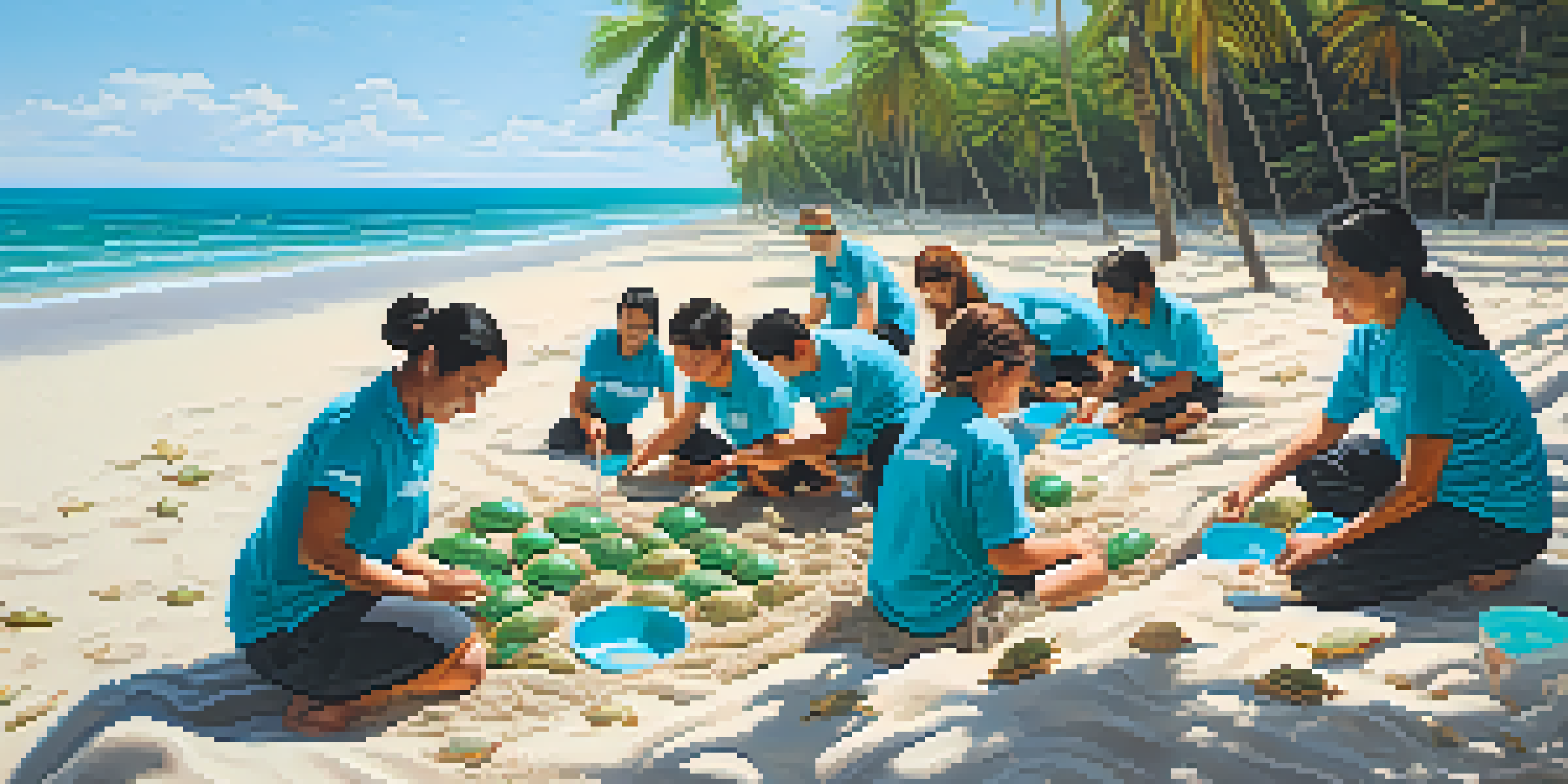Eco-Volunteering: Help Protect Thailand's Natural Beauty

What is Eco-Volunteering and Why Does It Matter?
Eco-volunteering combines the spirit of travel with a commitment to environmental preservation. It involves volunteering for projects that seek to protect natural habitats, wildlife, and communities. By participating in such initiatives, volunteers contribute directly to conservation efforts while gaining firsthand experience of Thailand's stunning landscapes.
The greatest threat to our planet is the belief that someone else will save it.
This type of volunteering not only supports local conservation efforts but also promotes sustainability. Volunteers often help in areas like reforestation, wildlife rescue, and community education. Thus, eco-volunteering becomes a meaningful way to engage with the local culture and environment, making a positive impact that resonates long after the trip ends.
In Thailand, where biodiversity is rich yet threatened, eco-volunteering plays a crucial role. The country is home to unique ecosystems, including tropical rainforests and coral reefs, which need dedicated efforts to preserve. By volunteering, you help ensure that these natural wonders can be enjoyed by future generations.
Popular Eco-Volunteering Projects in Thailand
Thailand offers a variety of eco-volunteering projects that cater to different interests and skills. One popular initiative is working with sea turtles in conservation programs along the coast. Volunteers help with nesting site protection, hatchery management, and educating visitors about the importance of marine life.

Another engaging opportunity is joining reforestation programs in northern Thailand. Volunteers participate in planting trees and restoring habitats that have been affected by deforestation. This hands-on work not only revitalizes the environment but also provides a deeper understanding of local ecosystems.
Eco-Volunteering Enhances Conservation
Participating in eco-volunteering projects in Thailand directly supports environmental preservation efforts and benefits local communities.
Wildlife rescue and rehabilitation projects are also prevalent, where volunteers assist in caring for injured animals. These programs often focus on endangered species such as elephants and gibbons. By participating, volunteers contribute to essential care and rehabilitation efforts, helping to ensure these animals can thrive in the wild.
How to Choose the Right Eco-Volunteering Program
Selecting the right eco-volunteering program can be a daunting task, given the myriad of options available in Thailand. Start by identifying your passions and skills—whether it's wildlife conservation, marine biology, or community education. This alignment will enhance your experience and the impact of your work.
Volunteers do not necessarily have the time; they just have the heart.
Next, research the organizations offering these programs. Look for reputable agencies that prioritize ethical practices and have a proven track record in conservation. Reviews from past volunteers can provide insights into the organization’s effectiveness and the overall experience you can expect.
Finally, consider the location and duration of the program. Thailand has diverse environments, from lush jungles to coastal regions. Choose a program that fits your interests and schedule, ensuring a fulfilling experience that allows you to immerse yourself in the local culture while making a difference.
The Benefits of Eco-Volunteering for Participants
Eco-volunteering offers participants numerous benefits beyond merely helping the environment. One of the most significant advantages is the opportunity for personal growth. Volunteers often return home with newfound skills, confidence, and a deeper understanding of global environmental issues.
Additionally, you get to meet like-minded individuals from around the world. This shared experience fosters lasting friendships and connections that can inspire future collaborations in conservation efforts. The camaraderie built during eco-volunteering can create a supportive community passionate about making a difference.
Choose Programs that Align with You
Selecting the right eco-volunteering program involves matching your passions and skills with reputable organizations to ensure a fulfilling experience.
Finally, volunteering in Thailand allows you to immerse yourself in its rich culture and traditions. From learning about local customs to tasting authentic cuisine, these experiences enrich your journey and create unforgettable memories. It's a unique way to blend travel with purpose.
Preparing for Your Eco-Volunteering Adventure
Prepping for an eco-volunteering trip involves more than just packing your bags. Start by researching the specific requirements and guidelines of your chosen program. This may include vaccinations, gear, or specific skills you might need to bring along.
Next, consider your travel insurance options. Ensure that your policy covers volunteering activities, as some standard policies may not include them. It’s essential to be prepared for any unforeseen circumstances, allowing you to focus on your volunteering work.
Lastly, brush up on your knowledge about Thailand's culture and environmental issues. Understanding local customs and challenges will enhance your experience and help you connect better with the community. This preparation sets the stage for a rewarding and impactful journey.
Safety and Sustainability in Eco-Volunteering
Safety is a crucial aspect of any volunteering experience, especially in a foreign country. Ensure that the organization you choose prioritizes volunteer safety, providing necessary training and support throughout your stay. Understanding the local environment and wildlife is essential to protect yourself and contribute effectively.
Sustainability should also be at the forefront of your eco-volunteering efforts. Engage in practices that minimize your environmental footprint, such as reducing waste and conserving water. Being a responsible volunteer means being conscientious about how your actions impact the local ecosystem.
Lasting Impact Beyond the Trip
Eco-volunteering creates opportunities for ongoing contributions to conservation efforts, allowing volunteers to inspire others and continue their support after returning home.
Ultimately, adopting a sustainable mindset during your volunteering experience enriches the community and enhances your personal growth. By leading by example, you can inspire others to practice eco-friendly habits, creating a ripple effect that extends well beyond your time in Thailand.
Making a Lasting Impact Beyond Your Trip
One of the most rewarding aspects of eco-volunteering is the potential for lasting impact. While your time in Thailand may be limited, the work you do can create ripples that benefit the environment and community long after you leave. Whether it’s planting trees or educating locals, your contributions can lead to ongoing conservation efforts.
Consider staying connected with the organization after your trip. Many programs welcome ongoing support, whether through donations, advocacy, or spreading the word about their initiatives. Engaging with the organization keeps you involved and contributes to their long-term success.

Lastly, share your experiences with friends and family. By recounting your journey, you can raise awareness about environmental issues and inspire others to take action. Your stories have the power to motivate people to consider eco-volunteering as a viable and impactful way to travel.